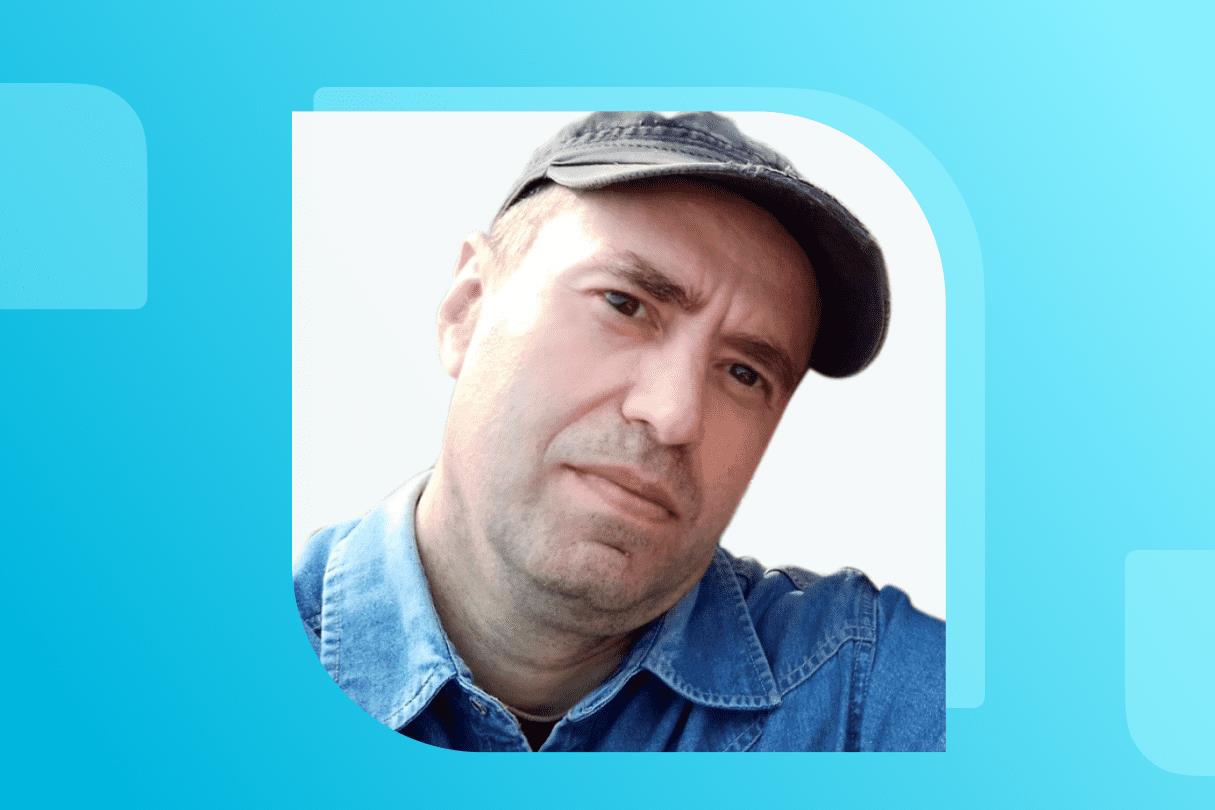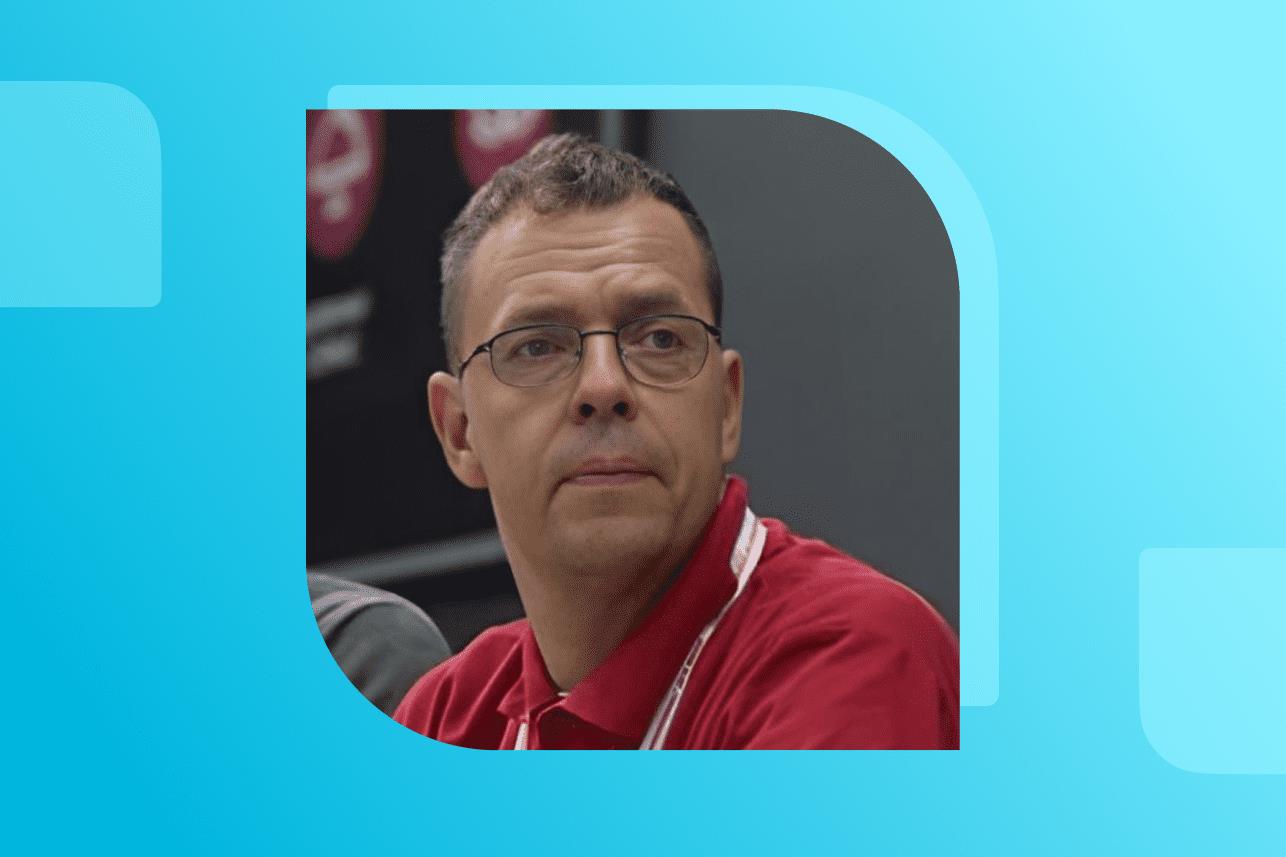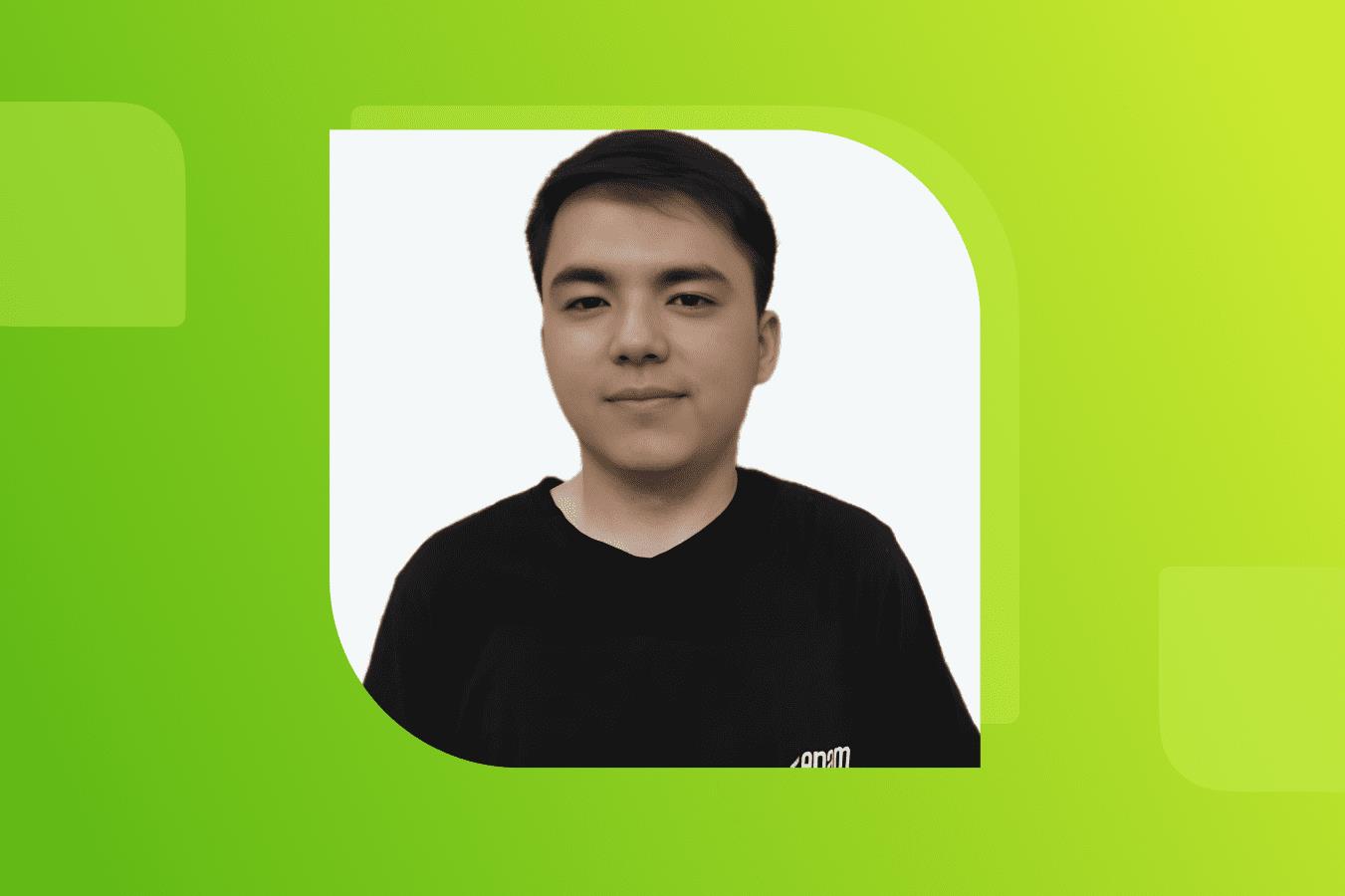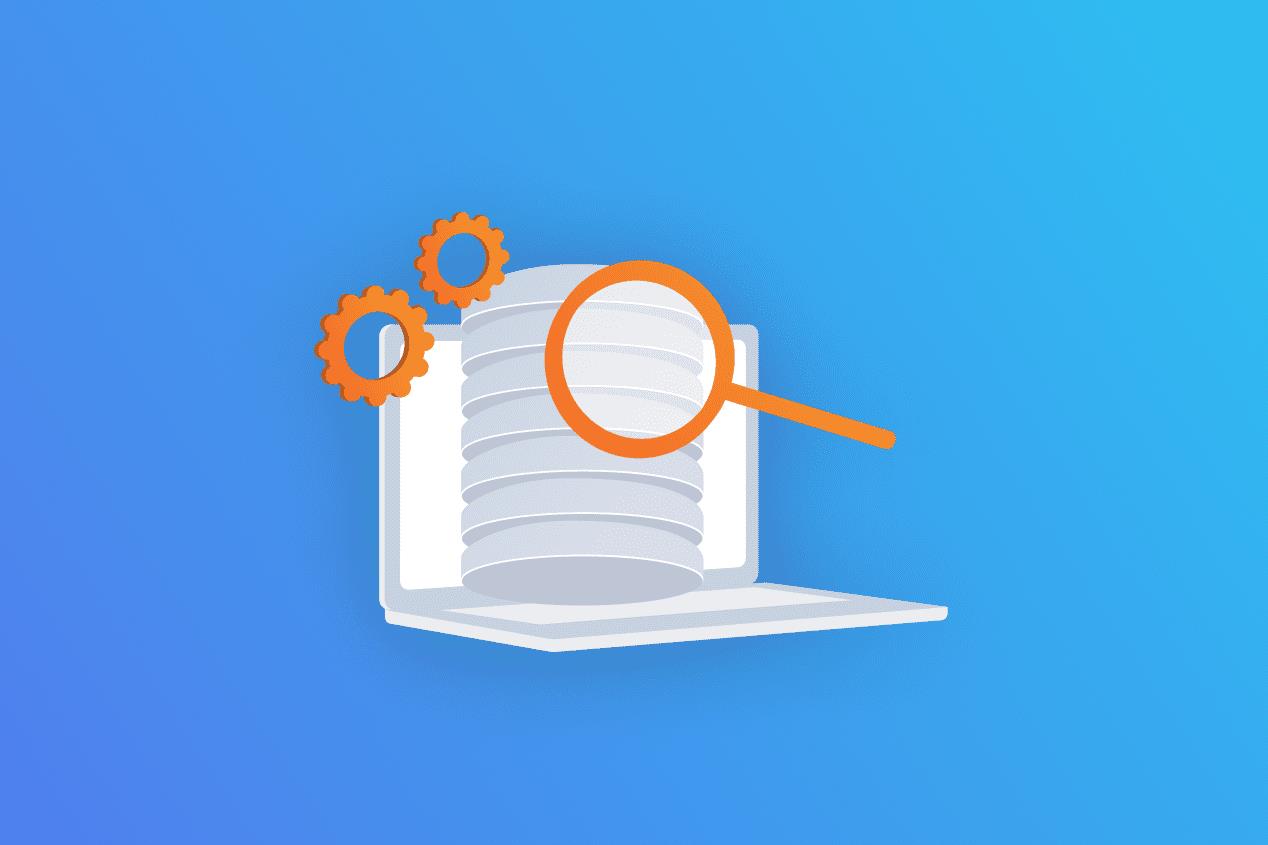Does disability become a limitation for specialists in various fields? Can you master new skills and a modern profession if you move around in a wheelchair? The story of Oleksandr Marchenko from Vinnytsia, who recently became EPAM Junior Systems Engineer, will help to dot the i’s in these questions.
In 2021, Oleksandr responded to an advertisement for the EPAM and UNICEF program for people with disabilities. It was aimed at young people with disabilities, parents of children with disabilities, and single parents who provide for their families. We spoke to Oleksandr about studying in the labs of EPAM and the particulars of the transition to his new profession.
Oleksandr, what did you do before you transitioned to IT?
I worked as a civil engineer in Vinnytsia. But 20 years ago, life changed drastically: due to an injury, I could no longer work in construction and switched to drawing up cost estimates. Unfortunately, our offices are ill-adapted for a non-mobile person, and the construction industry may stay idle for long intervals, so I had to look for a job in other areas as well.
Including IT?
At first, I made sites on WordPress and Joomla. Later I took QA testing courses on Prometheus but, somehow, it didn't go beyond obtaining certificates.
Before the full-scale war, I saw an ad for a DevOps course. And although the direction seemed difficult, the mention of UNICEF inspired confidence. The fact that the top students will have the chance to continue cooperation with the EPAM company sparked my interest even more. I prepared a project, switched to internal training, and eventually got the offer to move into production after three months of study in the external laboratory.
.png_01080048.jpg)
Did the direction turn out to be truly difficult?
I encountered DevOps for the first time, so it was not easy. Some participants in the program already had experience in IT or system administration, so I had to catch up, learn more than others and google constantly. The program had an added benefit: more mentors.
You mentioned learning in the external and internal laboratories. What is the difference between them?
The learning in the external laboratory is more basic: the participants get mostly introductory courses and general lectures. In the internal laboratory, studying gets in-depth and more intense, and the number of tasks for self-study grows. The one thing the laboratories have in common is the final project you prepare for graduation. In the internal laboratory, mentors help you figure out how to implement your idea.
What project did you work on?
My project's purpose was to build a hosting infrastructure for a Telegram bot in Python utilizing DevOps tools. I wanted to incorporate the whole DevOps process. In addition, I worked on improving my English because there is an English test to enter the internal laboratory. And, on the whole, English is crucial for IT because it is the language of all client communications and documentation. As a result, I advanced from basic level A1 to B1 in half a year. I'm currently continuing to study English, and I want to take language classes at EPAM. Before that, I spent about an hour a day studying by myself. The YouTube channel English by Playlists and English Club TV channel proved very helpful.
At what stage are you now?
I submitted the final project and received an offer to transfer to production. Now I'm working, continuing to learn, improving Terraform, and mastering Kubernetes. I hope to get AWS certification, and I am waiting for an offer for a commercial project at EPAM.
What attracted you to IT?
The topic of mobility frequently came up at my former workplace. In IT, on the other hand, I can do almost everything online. And if I need to, I can go to the EPAM office in Vinnytsia, which is convenient and accessible.
Another appealing prospect is the chance to work with multinational corporations.
The third reason is regulated working hours: I have an 8-hour workday and a weekend here.
So, do you think IT offers people with disabilities the chance to realize their professional potential?
In Ukraine, there are still few options for those with disabilities to pursue careers. For example, the Harmony center in Vinnytsia offers courses in design, English, and other subjects. IT, in my opinion, is an excellent field for professional advancement for many people with disabilities. It provides numerous options depending on your degree of technical training. However, there are problems with employment in this area as well.
What motivates you to study?
First and foremost, my family. My wife always supports me, she says that only those who do nothing make no mistakes. And my daughter is the ray of sunshine in my life. I believe even a small but constant, step-by-step success is a good motivation. The very fact that IT provides many opportunities for learning and development is also inspiring.
.png_01071545.jpg)
You know, many people with disabilities lose faith in themselves, shut themselves away, and stop living active life. They need support, especially during times of war. Moreover, many injured defenders are now returning from the front lines. I think this kind of program is very relevant.
What advice would you give to people who are on the fence about studying IT?
- Do not fear modern technologies. Currently, IT spans many directions. Companies and the government are working together to develop numerous new programs to help people learn them. These initiatives include IT Skills 4U, IT Generation, and EPAM projects, such as IT Fundamentals and various self-study courses. Don't think twice, sign up!
- Don't be afraid to ask for assistance. My learning experience shows that the program supported students in every way. There was a Telegram channel where program participants could share tips. At all stages, there were mentors you could approach if need be: Anton Prykhodko who could explain the most complicated concepts in simple terms, and Serhii Zakharchenko and Yan Sereda of the internal lab.
- Do not be afraid to start from scratch. I began a career in a new industry at the age of 47. And I intend to achieve professional excellence in it.








